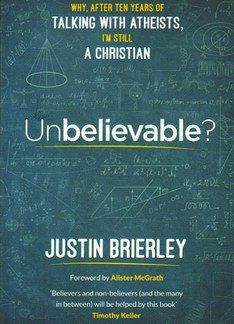Justin Brierley is the host of Premier Christian Radio’s Unbelievable? radio show. He describes how, as an undergraduate at Oxford University, his contact with sceptics made him question his belief in God and Christianity. He explains that the experience helped him affirm the rationality of Christian belief.
This background explains the show he hosts. Its usual format is a conversation between two guests about why one of them believes and the other does not. His book contains the lessons learned and is his chance to no longer be the ‘neutral’ host, but instead demonstrate that, despite other competing worldviews, especially atheism, Christianity makes best sense.
His approach to apologetics is helpful. He writes, ‘In the end, nobody gets argued into the kingdom of God’ (p.196). Rather, he sees apologetics as ‘removing barriers to belief’ (p.196). Rosaria Butterfield has written, ‘The Bible makes it clear that reason is not the front door of faith. It takes spiritual eyes to discern spiritual matters. But how do we develop spiritual eyes unless Christians engage the culture with those questions and paradigms of mindfulness out of which spiritual logic flows?’ (The secret thoughts of an unlikely convert). Unbelievable? will help facilitate this engagement.
Unbelievable? helpfully sets out a case for Christianity in the light of the author’s experience of hearing the strongest objections. Justin Brierley does an excellent job of summarising various arguments. Readers of apologetic books will be familiar with much of the material, but the book’s strength is its accessible style. It is undoubtedly a useful resource for any Christian and will challenge the thinking of any sceptic.
Readers will not agree with everything. In places, the author seems content with forwarding convenient arguments at the expense of engaging with Scripture. This is evident in the chapter on suffering.
Brierley writes: ‘As is often the case in Christianity, one size doesn’t fit all, and different believers will prefer different theodicies to make sense of God’s role in suffering’ (p.156). It seems certain theodicies can be rejected (Reformed, in particular), not on the basis of what the Bible says, but rather on the basis of how helpful you find it! In addition, his view of hell is the unbiblical one of annihilationism. That said, Brierley’s book is a useful and readable apologetic resource.
James Allan
Dowlais, South Wales




